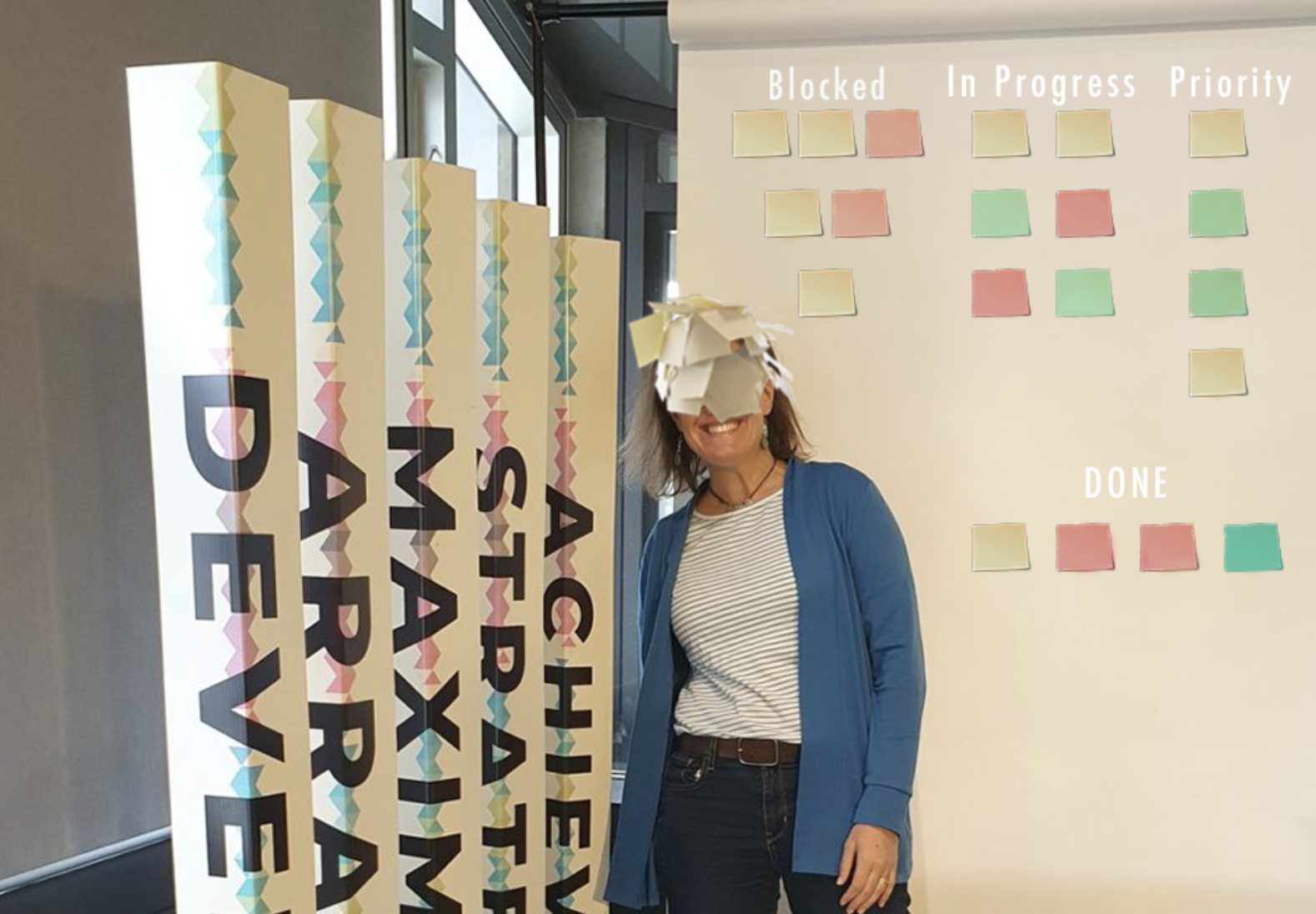
I have had several conversations recently about a general overwhelm many of us are feeling now. We miss freedom and routine, living with certainty, and in a world without restriction.
There is a lack of forward scenario planning for the longer term with the prolonged Covid restrictions, disrupting our sense of calm and normal order. The constant calendar Jenga of plans decided, then scrapped, then re-organised again is a lot for our cognitive load to carry. We are used to routinely carrying out various parts of our lives on auto-pilot (not anymore, thanks, Covid).
I know I’ve certainly felt some angst these last couple of years about running your own business when plans are constantly changing, things get moved, postponed, or side-lined due to other, more urgent priorities. I love to plan (my Adaptability strength and ‘go with the flow’ isn’t as high as my will to organise!).
- How should I prepare for that speaking event in a month if I don’t even know if it will go ahead? Should I invest time and energy into it or not?
- What about the team workshops coming up in the next few weeks – will they even happen? What will these teams most need at these gatherings (depending on the new weekly circumstances they find themselves in)?
- When will I ever get to see my UK family again?
I feel tremendous empathy for those doing it way more challenging than we are. I’ve got it easy compared to many. I think for all those across the North Island within stricter lockdowns or under self-isolation circumstances. And the many small businesses across the country are struggling right now (all 530,000 of them, representing 97% of New Zealand’s total firms).
Find stability through connection: As humans, we need connections with each other.
Especially in a time like no other, a connection significantly weighs our mental health. It can provide an overall feeling of purpose and validate self-worth and is a sense of security and stability. Having relationships with others and the ability to lean on them for emotional support during tough times lowers stress, helps us live longer and decreases risks of depression.
The times are changing. In the past, support from others was a sign of weakness, and I am here to tell you it is a sign of strength. By sharing, we begin to connect, and by connecting, we heal.
It can be in the form of a sense of belonging that helps you be your most authentic selves while embracing all the positive qualities that make up who you are. It might look like support throughout difficult times, having people you can talk to work from emotions and make you feel safe. Connection inspires purpose. You not only receive help but give it as well. This is a type of emotional stability, and when we can find this foundation of support, it helps build from the ground up.
Connection and relating are woven into each building block of life, from the small scale to the largest of mountains to climb. It’s the ability to relate to people, ideas, perspectives, understand ideas, cultures and approach problems as a powerhouse with those you can call on for support. We see this every day from family to friends and in the workplace. Now more than ever is the time to encourage connection. It might be virtual right now (and that’s ok!), or you might be lucky enough to have a support system you can lean on safely in person.
What can you do when things are outside the norm?
- What do you do to stay best connected with those you care about?
- What space are you creating for what matters most?
- What cognitive load are you carrying (which you may not be responsible for maintaining)?
- How are you best managing your time and priorities given the uncertainty you face?
TAKE CONTROL
Sometimes, it is difficult to know where to start when the pressures of day-to-day life, work-life, school life, home life, caring for elderly parents, dog-mum life, healing from sickness or self-isolating at home. It all starts staking up. It can feel enormously overwhelming – and it’s ok, we have all been there before. For many of us, some things are outside of our control. One really significant step in finding stability in the unstable is writing these out.
By writing out what is within our circle of influence (see my blog Caring or Carrying), we can begin to identify what is actually in our realm of control and make an action plan for positive steps to find stability in our choices to succeed.
Writing things out is a first step to making our actions tangible. It allows us to have a space to declutter our minds from memorising all the details of life and trust that we have freedom when we are ready to focus and tackle. It is a practice that can take the weight off by first writing and then making tiny steps of change.
Here’s an experiment I’ve been running for my cognitive load related to work:
Over the last month, something has helped me sift through my cognitive load around things I have no control over vs. things that I can take control of daily. I filtered through all my lists of postponed/cancelled work (from the lockdown) into the following:
- Waiting on others/follow up/blocked (yellow post-its)
- Stuff I can tackle now (priority 1, green post-its)
- Things I can tackle later (priority 2, green post-its)
- Personal development priorities (orange post-its)
Having that sea of yellow post-it notes under ‘blocked’ made me realise how much I am waiting on others to get the ball rolling on some things. This stuff had been taking up my mental bandwidth so much before – now I am choosing not to feel bad if clients don’t get back to me for booking dates for coaching and workshops etc. I am firm with my availability and let others know my expectations. I’m a forward planner and want to nurture strengths that benefit my wellbeing. Last-minute appointments no more! It also has helped me focus on the green and orange post-its when I start my workdays – that’s the stuff in my control. My cognitive load is clearer. I feel lighter.

Image: A representation of feeling. Grounding internally is achieved (for me) externally. Getting those thoughts that can overwhelm you on some paper and putting them into action categories helps me feel lighter.
It’s essential to find a way to navigate your cognitive load. For me, I am sold with post-it notes. Some other ways to help you find your centre:
- Completing a values exercise to help establish what is most important to you. From here, you can identify what steps you need to take to ensure that your values are being met.
- Must have/Nice to have. It is a quickfire technique derived from the MoSCoW method. It is a prioritisation technique mainly used in business to establish your baseline of what is essential at the moment. “I must do take the dog for a walk to burn her puppy energy” to “it would be nice to make a full meal from scratch, but leftovers is ok too”. It can help as a rapid-fire to help find consistency and start getting the ball rolling on specific tasks.
- Establishing your habits daily helps build an infrastructure within your brain by making some things automatic, thus decreasing the mental strain when challenges come your way. You already have a reserve of habits that will keep the internal machine going along. Creating these keystone habits are correlated to other habits like a domino effect. Positive potential in one area will transfer to others. It allows you to take on more challenging goals with a solid foundation to fall back on.
- Looking after yourself physically will help you mentally. It improves sleep, decreases anxiety and is a way to be present. Having an anchor of physical health will act as a domino effect throughout your life and help support your mental health to deal with hurdles that come your way. We hear it all the time, but after the last couple of years, being kind to yourself is more than just a mental break. It’s making sure that your physical health is also looked after.
It is still difficult to find stability in the uncertain within today’s world. It can be an uncomfortable feeling, like throwing a stack of papers in the air and hurriedly trying to collect them all at once. It’s ok to lean on others for support and say, “Hey, there’s a raincloud of papers about to come down. Would you mind lending a hand?” and, in turn, offer the same support when someone needs it. Having systems that help you establish goals and boundaries can be a driving factor in finding stability. When we can assess our priorities and write them out, we can work backwards and take each day by day to establish consistency in our own lives and find stability and methods that help us succeed.

